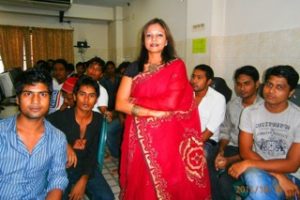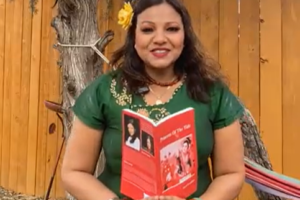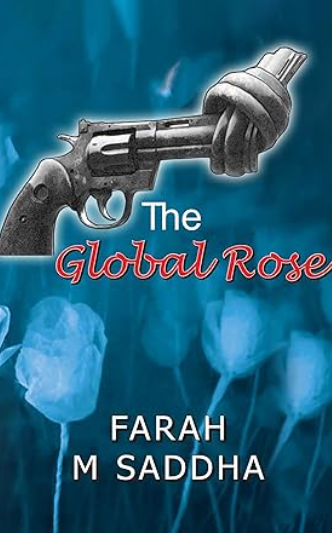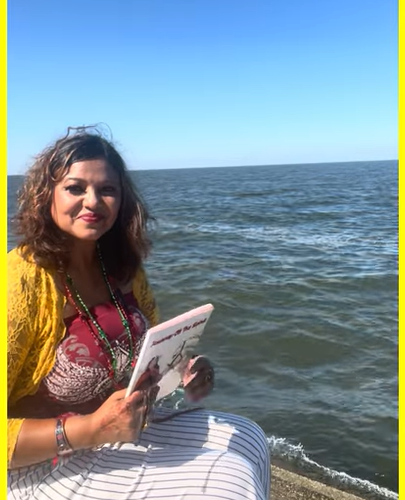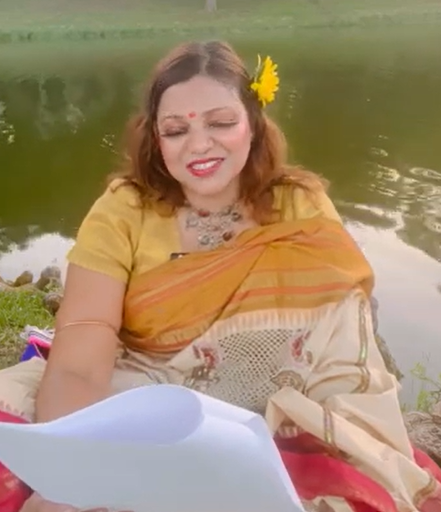More than four years ago, the FBI appealed to the public to help identify the narrator in one of the Islamic State group’s best-known videos, showing captured Syrian soldiers digging their own graves and then being shot in the head.
Speaking fluent English with a North American accent, the man would go on to narrate countless other videos and radio broadcasts by the Islamic State, serving as the terrorist group’s faceless evangelist to Americans and other English speakers seeking to learn about its toxic ideology.
Now a 35-year-old Canadian citizen, who studied at a college in Toronto and once worked in information technology at a company contracted by IBM, says he is the anonymous narrator.
That man, Mohammed Khalifa, captured in Syria last month by a U.S.-backed militia, spoke in his first interview about being the voice of the 2014 video, known as “Flames of War.” He described himself as a rank-and-file employee of the Islamic State’s Ministry of Media, the unit responsible for publicising such brutal footage as the beheading of American journalist James Foley and the burning of a Jordanian pilot.
“No, I don’t regret it,” Khalifa said from a prison in north-eastern Syria. “I was asked the same thing by my interrogators, and I told them the same thing.”
A thin, diminutive man who occasionally broke into a grin during the hours-long conversation with The New York Times, Khalifa said he immigrated as a child from Saudi Arabia to Toronto, where he learned to speak much like a native Canadian. He said he had studied computer systems technology and worked for a contracting company before leaving for Syria — drawn to the battlefield by watching YouTube.
Terrorism experts say it is hard to overstate the role his effortless English narration played in bringing the terrorist group’s propaganda to English speakers and luring some of them to its cause.
“His voice is the most recognisable English-speaking voice to have ever appeared in Islamic State propaganda,” said Charlie Winter, a senior research fellow at the International Centre for the Study of Radicalisation at King’s College London.
To verify Khalifa’s claim, The Times asked three audio-forensic experts to compare the anonymous voice on the “Flames of War” video with a televised statement by Khalifa aired in Syria shortly after his capture. Though such analyses are not foolproof, all three experts concluded it was highly likely that Khalifa was the narrator.
It is “134 times more likely that the unknown speaker” is Khalifa than someone else, Catalin Grigoras and Jeff M Smith wrote in a report prepared for The Times. Both are forensic audio specialists at the University of Colorado National Centre for Media Forensics.
Robert C Maher, a voice recognition expert at Montana State University in Bozeman, created a spectrogram comparing the pronunciation of specific words in the two audio clips, concluding that “the speech tone, pitch, cadence and pronunciation is the same in these examples.”
Later, a US official briefed on the matter confirmed to The Times that Khalifa was indeed the narrator.
The release of the “Flames of War” video on Sept 19, 2014, marked a turning point for the Islamic State group, coming less than three months after the founding of the group’s caliphate. Until then, the group had published shorter, less ambitious videos.
Filmed in part by an Islamic State fighter equipped with a GoPro camera, the 55-minute video was the first to create an immersive experience, showing a soldier digging a trench before an operation, conducting surveillance and then engaging and overrunning the enemy. Because it was narrated in English, it became a touchstone for recruits from Australia, Britain and North America, according to Winter.
For Khalifa it was the beginning of a prolific career. The sum of his narration work — believed to include dozens of audio and video clips — serves as a sampling of the Islamic State’s most influential English-language propaganda.
“He is a symbol — the voice coming out of ISIS, speaking to the English-speaking world, for the better part of the last four to five years,” said Amarnath Amarasingam, a prominent researcher in Toronto who studies radicalisation in Canada, using an alternative name for the Islamic State group.
Khalifa is now among hundreds of Islamic State fighters from approximately 50 countries who are locked in prisons in northern Syria. Thousands of their wives and children are being held in detention camps, free to move among the tents but unable to leave. Khalifa said he had married in the caliphate and had two children, though it was unclear where they were now.
Canada is one of many countries that have been reluctant to take back their citizens, worried that battlefield evidence may be deemed inadmissible in court, making it difficult to secure prosecutions.
A month after his capture, Khalifa’s future was uncertain. He said he had not received a visit from Canadian authorities or been offered consular help. The Royal Canadian Mounted Police declined to comment on his detention, as did the Canadian foreign ministry. The FBI also declined to comment.
Amarasingam, the Toronto researcher, was among the first to take an interest in the unnamed narrator’s possible Canadian connection, after noticing the distinct accent of the speaker in an Islamic State video boasting about the 2015 attacks in Paris. “I thought, this guy sounds like people I grew up with,” Amarasingam said.
Later, on a research trip to Syria, Amarasingam and journalist Stewart Bell were given access to a Canadian fighter captured nine months ago. The combatant, Muhammed Ali, said he had met and befriended the narrator, describing him as a Canadian of African descent who used the nom de guerre Abu Ridwan.
In an interview with The Times, Ali agreed to listen to an audio recording of the recently captured Khalifa. “That’s him,” he exclaimed. Ali said Khalifa’s identity as the narrator was not widely known in the caliphate. “That’s not something he shares,” Ali said. “But once you speak to him, it’s obvious.”
In a two-minute televised statement after being captured by the Syrian Democratic Forces, Khalifa identified himself as an Islamic State fighter and gave his name as Mohammed Abdullah Mohammed, which follows the Arab naming convention of his first name followed by his father’s and grandfather’s names. He admitted to attacking the local Kurdish militia but made no mention of his role as the narrator.
The brief statement was enough for analysts to recognise the voice as that of the narrator, though officials with the militia group said Khalifa initially denied his role.
In the interview with The Times, Khalifa spoke in the presence of two Kurdish prison officials, who recorded the exchange but did not interfere. He clarified that his legal name was Mohammed Khalifa, a detail confirmed by Amarasingam, who has been in touch with one of his childhood friends in Canada. Khalifa played down his significance in the Islamic State and insisted that he had not appeared in any execution videos beyond providing the voice-over narration, a claim that could not be immediately verified since most executioners wore masks.
He said he was born in Jiddah, Saudi Arabia, to parents of Ethiopian descent, earned a diploma in computer systems technology from Seneca College in Toronto and led an unremarkable work life as an information technology specialist, including for Kelly Services, an IBM contractor. IBM did not immediately respond to a request for comment.
Reached by phone, Kelly Services confirmed that a Mohammed Khalifa was contracted by the company from May 2009 to April 2010 in Markham, Ontario. Seneca College declined to comment.
By 2013, Khalifa was listening to online lectures by Qaida propagandist Anwar al-Awlaki. He said they convinced him of the necessity of jihad. But it was a YouTube video, not unlike the ones he would later narrate, that helped him make the leap. It showed a group of British fighters speaking English on the front line in Syria, he said, giving him the sense that he could fit in.
Khalifa said he crossed into Syria in 2013 and initially joined the Muhajireen wal Ansar Brigade led by Omar al-Shishani, a Georgian militant who would become the Islamic State’s minister of war. The brigade pledged allegiance to the Islamic State group in late 2013, and before the caliphate was declared in 2014, Khalifa said he had already begun working for the group’s media ministry, among the most crucial organs of the terrorist state.
He said he was initially employed as a translator, helping render Arabic copy into English, before being asked to work as a narrator. Asked which videos he worked on, he initially demurred, before quietly answering, “Like ‘Flames of War.’”
The media unit, he said, was led by Abu Muhammad al-Furqan, an Iraqi confidant of the Islamic State’s leader, Abu Bakr al-Baghdadi. The media chief, killed in an airstrike in 2016, was intimately involved in vetting the group’s work, reviewing scripts and requesting edits, Khalifa said.
The chief insisted that the execution videos feature a diversity of killers, so no single participant rose in prominence above others. A camera team roamed the caliphate scouting for the ideal executioners, Khalifa said. They were especially keen to find people from different nationalities to underscore the group’s global reach.
“The intention was to not make anyone into a celebrity,” Khalifa said.
The team staged the executions, capturing the scene using still cameras, GoPros and drones, and then delivered the raw footage on an SD card to the media unit’s office, inside a villa on the Euphrates 12 miles outside Raqqa, Syria.
There, he said, an editing team pored over the footage, storyboarding the narrative arc and adding sound effects and narration.
Khalifa claimed that he had had no role in filming or carrying out the scenes he narrated, which included deploying underwater cameras to capture the staged drowning of prisoners.
“I was just the voice,” Khalifa said, insisting that his work was confined to the studio.
He said he was chosen for that role by an Australian supervisor who went by the name of Abu Abdullah.
“He would give me a text, like a script, and I would review it for mistakes, and then we would record,” he said. “He would then review it and see if there was anything that he would like me to place emphasis on.”
At first, Khalifa said, the audio was recorded in a professional studio, with walls made of foam to absorb ambient sound. They used the software Magix Samplitude to edit the sound, and the finished productions were broadcast through a portable satellite dish.
But that all changed with US airstrikes in late 2014, Khalifa said. They had to relocate to urban centres starting with Raqqa, moving from house to house, aware that the proximity to civilians helped protect them.
As the Islamic State’s territory shrank, the media team was pushed out of Raqqa, but remained active, carrying the satellite dish with them, he said. They worried that the dish might give them away, but they continued transmitting nonetheless. In the final weeks before his capture, Khalifa estimated, there were at least 20 media operatives in the group’s last pocket in Syria, which has since been reduced to a tiny patch of land.
“Guys I knew agreed to work out of their homes,” he said. “They still took the risk.”
By the time he was apprehended last month, Khalifa said he had stopped working for the media unit and had picked up a Kalashnikov rifle to defend the Islamic State. Officials with the Syrian Democratic Forces said he had tried to attack their position. Khalifa said he had approached a villa, entering from below while soldiers were on an upper floor.
After a protracted gunfight, he said, he was bleeding and alone. The videos he had narrated were full of bravado, his voice representing a group that had vowed never to give up. But after more than six defiant years in the battle zone, Khalifa said, he did something that he never thought possible.
“I was exhausted. My ammo was gone,” he said. “They kept calling on me to surrender, and so I threw down my weapon.”





